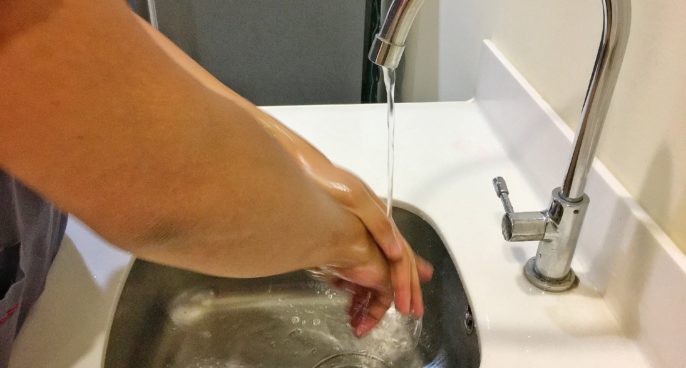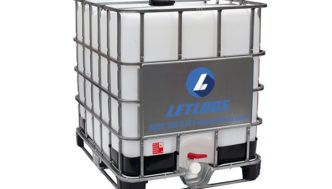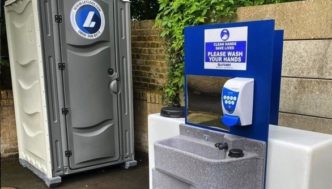
Access to clean running water at work is a basic welfare requirement outlined by the Health and Safety Executive (HSE). While all workplaces are different and variables such as geographical location and access to a mains system need to be taken into account, employers are generally required to provide running water in the workplace. Of course, obligations vary depending on the nature of the workplace and the type of labour being carried out. There are also some exceptions to the rule, so it’s important to understand where you stand.
Whether you’re an employer who wants to know more about your legal obligations and responsibilities, or an employee interested in finding out more about your rights in the workplace, this article is for you. Read on as we explore when employers have to provide running water at work and the different solutions available.
Table of Contents
The basics as outlined by the HSE
When getting a handle on your responsibilities as an employer or your rights as an employee, the Welfare at Work guidelines document published by the HSE is a good place to start. It states the following regarding running water in the workplace:
“If you employ anyone (however short the period) you must ‘so far as is reasonably practicable’, provide adequate and appropriate welfare facilities for them while they are at work. This means you must provide such facilities unless it is clearly unreasonable in terms of time, trouble, cost and physical difficulty. ‘Welfare facilities’ are those that are necessary for the well-being of your employees, such as washing, toilet, rest and changing facilities, and somewhere clean to eat and drink during breaks.”
The keyword here is ‘welfare facilities’ which as the HSE explains, refers to amenities like toilets and showers. Toilets are generally a must while access to showers will depend on the nature of the worksite. Below, we take a closer look at the different types of ‘welfare facilities’ that should be available in the workplace.
Portable flushing toilets
The legal requirements for toilets in the workplace are strict and must be adhered to by employers across the UK. If your worksite has access to the mains water supply and sewage system, there’s no reason why a flushing toilet can’t be installed. Clean and comfortable to use, mains-connected toilets are a great option for long-term projects where toilets will be used for several weeks or months. Plumbing into the mains water system means employees can enjoy access to full flushing facilities, as well as running water to wash their hands. Basically, they’re a guaranteed way to meet the toilet welfare requirements outlined by the HSE.
Why choose portable flushing toilets? Ensuring your team has access to clean and comfortable toilet facilities will not only improve workplace health and safety but also boost productivity and morale. Mains-connected toilets also exceed the basic legal requirements for toilets in the workplace, giving you the total peace of mind that your site is HSE compliant.
Unlike portable chemical toilets which need to be emptied once a week, mains-connected toilets send waste straight to the public sewage system. This minimises odour and makes the toilets easy to clean and maintain. Generally, worksites enlist the help of third-party companies to clean portable flushing toilets on a daily basis.
Portable chemical toilets
From urban construction sites to countryside home builds, it’s not always possible to connect to the mains water system. The good news is this doesn’t have to cause a headache and you won’t need to sidestep your legal requirements for toilets in the workplace. At LetLoos, we specialise in providing workplaces with portable chemical toilets that take car of business without the need for a mains water connection.
Ideal for workplaces with no mains access, chemical toilets make it easy for your employees to answer nature’s calls. Under British standards (BS6465-1-2006) you should install one chemical toilet for every seven full-time workers. Toilets are usually emptied weekly, though you may need to organise more frequent emptying for heavy use. Ideally there should be separate facilities for men and women, though of course this isn’t always possible. Failing separate facilities, toilet facilities should feature lockable doors.
The HSE offers the following guidelines on chemical toilets:
“Chemical toilets – portable chemical toilets (also known as plastics) are acceptable where you cannot provide flushing toilets. They may be the only achievable way of providing toilet facilities at the start and / or end of some projects. They are more common on temporary and smaller sites or in addition to permanent facilities on more remote parts of larger sites.”
Easy to install and affordable to rent, these sanitation solutions meet the strict health and safety standards outlined by the HSE. At LetLoos we include delivery, installation and collection in all our portable toilet hire prices.
Not sure how many portable toilets you need to provide at your workplace? Use our easy portable toilet calculator to crunch the numbers and determine how many you need. The HSE states that “people should not have to queue for long periods to go to the toilet” so be sure to provide enough units for all employees to comfortably use. This is the best way to meet your legal requirements for toilets in the workplace and ensure all employees have quick and easy access to facilities.
Single showers
If you operate a workplace where employees are exposed to excess dust, mud or hazardous substances, you may be required to provide access to showers. The HSE states showers are essential “for particularly dirty work” and should be equipped with hot or warm water. You’ll also need to provide basics like soap and shampoo if necessary.
Installing portable showers on your site doesn’t have to be a pain, with our single shower units offering a quick and easy solution. No mains water access or drainage is required, with showers connected to standalone water tanks.
Personal hydration
Access to clean water is a basic human right and every workplace must ensure employees have access to H2O. Under the Workplace (Health, Safety and Welfare) Regulations 1992 all employers must supply workers with an “adequate supply of wholesome drinking water” that’s clearly marked and easy to access. It must be free from contamination and ideally sourced from the public water supply, though if this isn’t possible bottled water or standalone dispensers are an option.
The HSE drinking water at work law also states that the ambient temperature of the workplace and the types of activities being carried out should be factored in when determining how much H2O needs to be supplied.
At LetLoos we offer gold-standard Freshwater Replenish solutions for workplaces of all shapes and sizes. Fully compliant with all UK water regulations, our secure filling points are made from ultra-tough plastic with reinforced dispensers. They’re locked and tagged for extra security, meaning your running water in the workplace remains safe and pure even when unsupervised.
Why does hydration matter in the workplace? As well as causing general discomfort, dehydration can have a negative impact on an employee’s ability to safely carry out tasks. This means personal hydration should always be a top priority for both employers and employees.
IBC water tanks
When you don’t have access to mains supply but still want to offer your team running water in the workplace, IBC water tanks are the ideal solution. Available in capacities of up to 1,000 litres, these huge tanks take care of all your running water needs. They’re easy to stack and interlock, meaning you can install multiple tanks to keep your water flowing for longer. IBC water tanks from LetLoos are also translucent so you can see when your supply is running low and replenish accordingly.
IBC tanks are primarily used for Welfare Units, ultra-modern spaces that feature a toilet, kitchenette and seating area. Tanks are tough enough to withstand harsh weather and construction site conditions, so you won’t need to worry about damage or deterioration.
Keeping facilities clean and hygienic
It’s not enough to simply install running water facilities and expect them to take care of themselves. The HSE asserts that all facilities, including portable toilets and showers, must be “kept clean and in good condition” at all times. This includes providing a decent supply of toilet paper, soap and other essentials. Maintaining clean and hygienic facilities ensures your employees can enjoy the running water facilities they’re entitled to.
Do nearby public facilities count?
According to the HSE, instructing employees to use nearby public facilities is not a substitute for on-site running water amenities. While taking advantage of public bathrooms and showers can be a cheaper option, it’s inconvenient for employees and will ultimately compromise on-the-job productivity.
You also run the risk of being reported by members of the public or even your own employees, who will likely lament being asked to leave the workplace and walk to public services every time they need to use the bathroom.
The same goes for drinking water, with public taps and fountains not considered a solution unless absolutely necessary. As outlined by the HSE drinking water at work law, all employees should have access to clean H2O at all times.
What happens when there’s no running water at work?
No workplace is perfect and it’s natural to run into running water supply issues along the way. As long as they’re resolved quickly and efficiently, there shouldn’t be a problem. However, when workplaces actively attempt to dodge HSE running water requirements the consequences can be severe. As well as hefty fines, companies may face legal action for failing to provide employees with basic facilities like toilets and drinking water.
If you’re an employee and you’re struggling with no running water at work, don’t hesitate to take the issue up with your employer. Ideally, they should take action within a matter of days. If they fail to make a change the HSE is incredibly proactive when it comes to following up on complaints.
It’s more common than you might think, with the latest statistics revealing 8% of British workplaces are breaking the law and failing to provide employees with on-site toilets. This is a blatant breach of the Workplace (Health, Safety and Welfare) Regulations 1992 and can result in significant fines. Furthermore, an estimated 11% of businesses fail to offer enough toilets for the size of their workforce, another breach of HSE regulations.
The best workplace running water solutions
If you want to tick all the boxes for HSE requirements and keep your team as safe, comfortable and satisfied as possible, there’s no substitute for LetLoos. We’re the number one provider of workplace running water facilities in the UK, with solutions for every scenario.
Whether you’re looking to install a single mains-connected toilet or half a dozen chemical loos, we have you covered. As well as portable toilet solutions, we specialise in hot wash shower units to keep your worksite safe and squeaky clean. We can also deliver Water Replenish stations to meet drinking water at work requirements.
Attention to detail is key and we’ll always take the time to find solutions that fit the unique needs of your workplace. This includes tailored recommendations on where to install facilities like chemical toilets and hot wash shower units.
Whatever HSE-compliant welfare facilities your workplace needs, we can deliver. We pride ourselves on stellar customer service and strive to offer tailored solutions to every client. It all starts with a quote – call us on 0800 368 8373 or contact us online using the web submission form.



